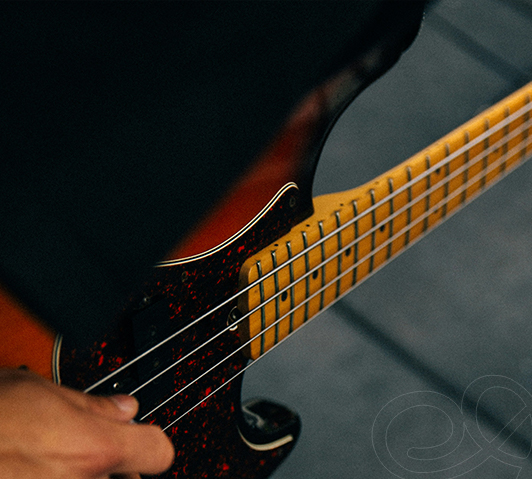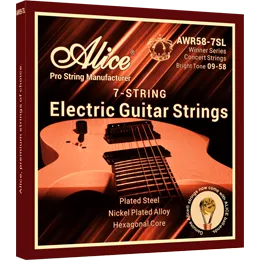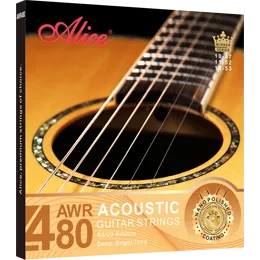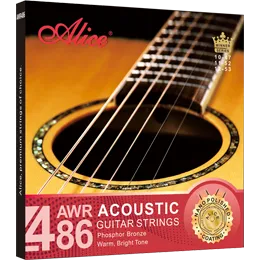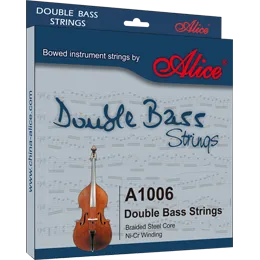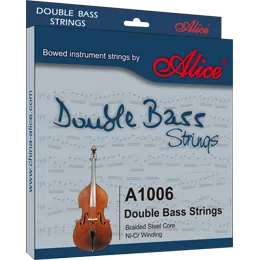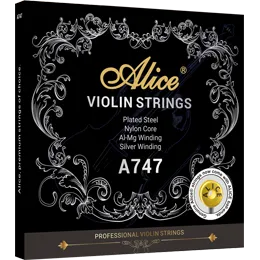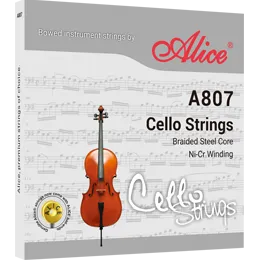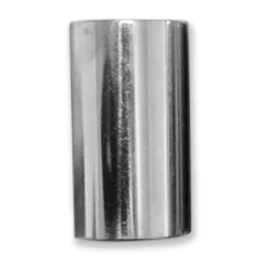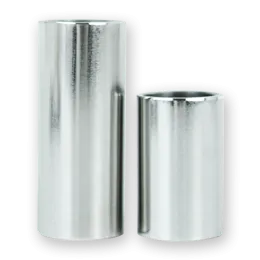Can You Put Nylon Strings on A Steel-string Guitar?
There has a distinct difference between the loud, bright sound of a steel-string guitar and the softer, warmer sound of a nylon-string guitar. Most guitar players ask whether nylon strings can be put on a steel-string guitar.
Can you put nylon strings on a steel-string guitar?
Yes, you can put nylon strings on a steel-string guitar.
However, some things need to be considered before putting nylon strings on a steel-string guitar. For example, most string sets need to be tied to a nylon-string guitar bridge, whereas the steel-string guitar is not fastened this way. In addition, there also will have several issues, including tuning stability, tension issues, and the lack of a ball end.
This article will provide a guide for you on this topic, such as the risks of using nylon strings on steel-string guitars and how to put the nylon strings on the steel-string guitar. Let's take a look!
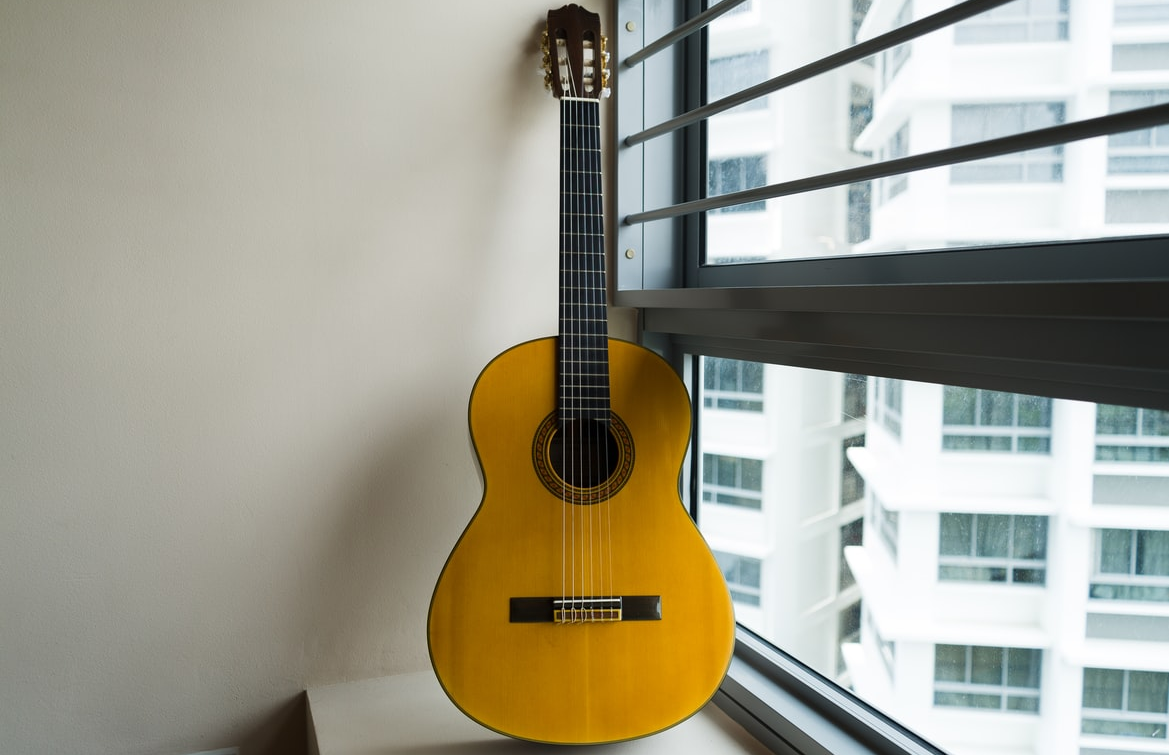
An overview of nylon strings
Nylon and steel strings have their own advantages in sound quality and playability. Nylon strings have lower tension, a soft and warm tone, and less clarity compared to steel strings. Depending on the material, gauge, core, and composition, they are available in various options. Many artists have used nylon-string guitars on pop records, from Pat Metheny to George Harrison to Lauryn Hill.
On the other hand, nylon strings have relatively less volume than steel strings. In addition, much more than steel strings of the same size, nylon strings get affected by heat. In general, you need to tune nylon strings more often than steel strings.
What happens when putting nylon strings on a steel-string guitar?
Putting nylon strings on steel-string guitars can be safe, but there is some risk involved:
String tension
Steel strings have more than 150 pounds of string tension, while nylon strings have less than 100 pounds of tension. The biggest disadvantage of using nylon strings on a steel-string guitar is the potential for neck damage due to the lack of tension. For example, steel strings need to be wound tighter to tune, while nylon strings are relatively loose.
Steel-string guitars have a truss rod, a metal rod that sits inside the neck to adjust the tension on the neck. You can adjust the truss rod on the headstock below the soundhole or behind the nut on most guitars. Most truss rods can be adjusted using an Allen wrench.
Steel-string guitar necks are designed to resist the high tension of steel strings. Therefore, if you switch to nylon strings without adjusting the truss rods, the guitar neck will likely bend over time because the neck exerts much more tension than the nylon strings. As a result, you need to adjust the truss rod to apply less tension when switching to nylon strings.
Stability
Even on nylon-string guitars, the nylon strings require frequent tuning. Nylon string is susceptible to humidity and temperature changes and is more prone to going out of tune than steel strings. Steel strings go out of tune initially and are relatively more stable when adjusted and settled.
Restringing issues
Steel strings have a ball-end inserted into the bridge and kept in place with a peg. On the other hand, nylon-string guitars have a plain end instead of a ball end. In nylon-string guitars, the bridge is made of holes where you insert the plain end and tie the strings to the bridge with knots. Therefore, it's impossible to restring a steel-string guitar with nylon strings in the same way.
How to put the nylon strings on the steel-string guitar
For those looking to put nylon strings on steel-string guitars, follow these steps:
1. Most common steel-string guitars use a bridge pin system, so the first thing is to find a way to secure the bridge.
2. The nylon strings have a bigger gauge than the guitar’s original steel strings. Therefore, the next thing to do is to feed the strings up the nut.
3. Make sure the nylon strings fit the tuner.
4. To loosen the truss rod tremendously with an Allen wrench.
Related questions: Can you put steel strings on a nylon-string guitar?
It's not a good idea to put steel strings on nylon-string guitars. Nylon guitars are not designed for the extra tension of steel strings. Most nylon strings have relatively low tension, while steel strings have a much higher tension, putting pressure on the neck. For example, if you put steel strings on a nylon-string guitar, the neck may bend or even come off the body. In addition, steel strings require more tension than nylon strings to tune properly. On the other hand, nylon guitar body tops are usually made of softer woods, with thinner soundboards and more delicate bracing than steel-string guitars. All in all, we recommend against putting steel strings on nylon string guitars.
How Alice Strings can help
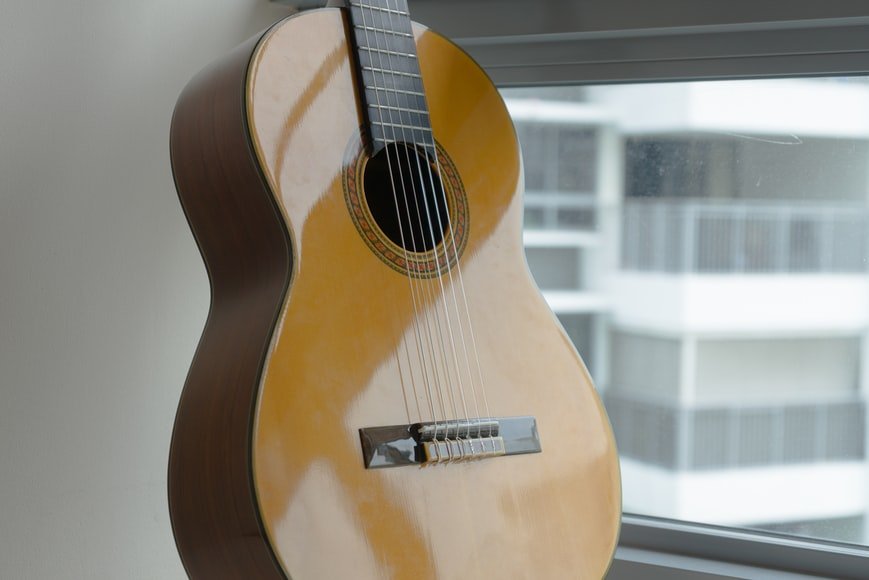
Founded in 1999, Alice Strings is a technology-based enterprise integrating R&D, manufacturing, and sales. After 20 years of development, the company now has 5 standard workshops, 12 professional production lines for musical instrument strings, and 16 string processing lines. In addition, Alice Strings has a professional R&D center. Chemical, mechanical, and structural methods thoroughly test materials and finished products.
We offer more than 2000 products to meet the needs of music lovers, mainlyClassical Guitar Strings, Acoustic Guitar Strings , Electric Guitar Strings , and other musical instrument accessories. For Classical Guitar Strings, we have seven types, including Silver Plated 90/10 Bronze Wound, Silver Plated 85/15 Bronze Wound, Alice AWR Series, etc.
If you are looking for a reliable supplier. Contact us!
Relate News
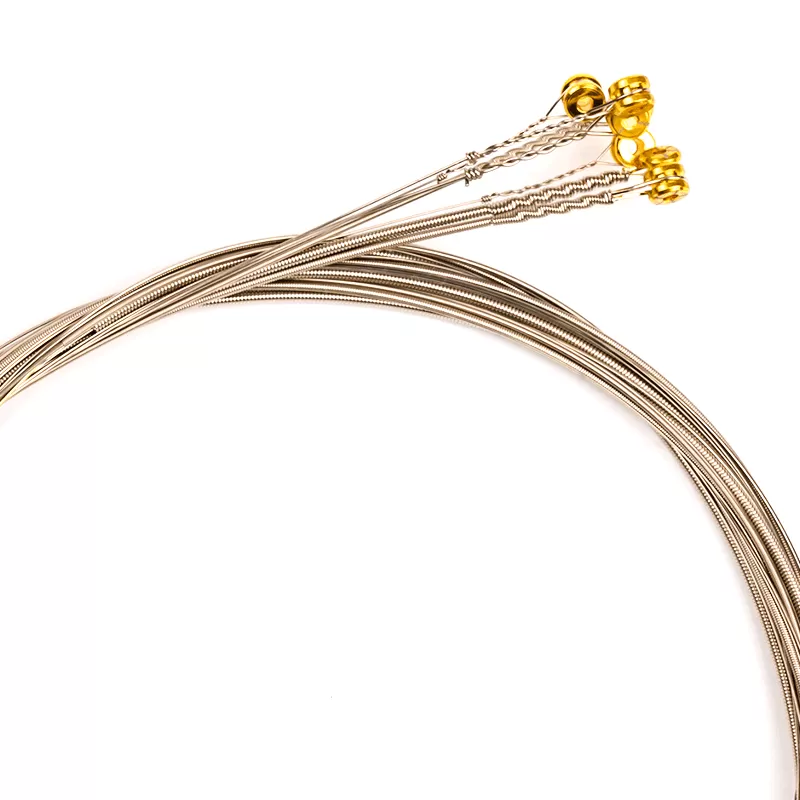

Electric Guitar Strings Gauge Chart and How It Affects Tone – A Complete Guide
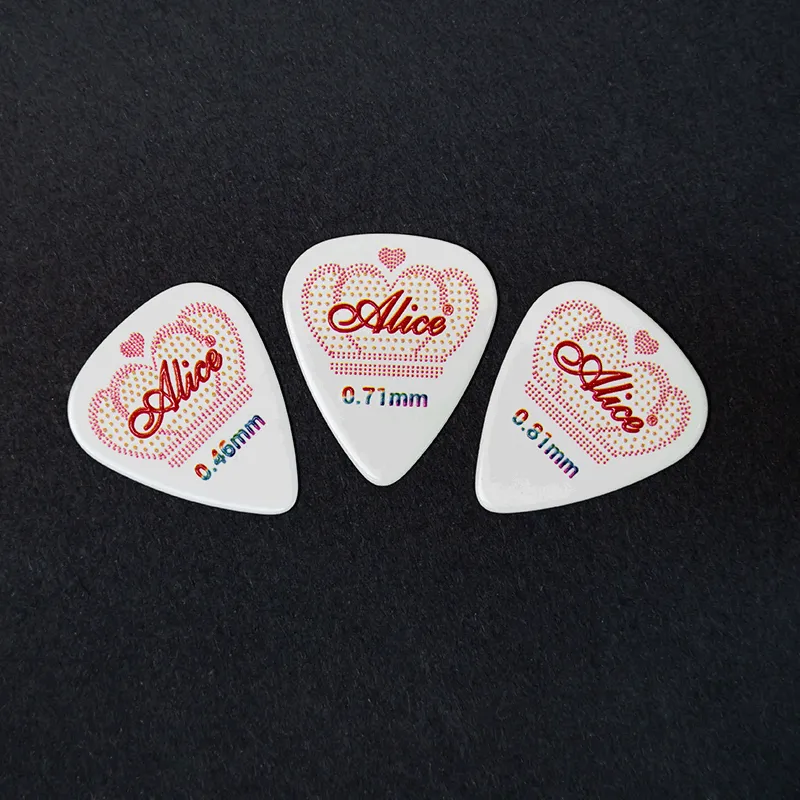
How Guitar Picks Affect Tone – And Why Stocking the Right Types Matters

Electric Guitar Strings Gauge Chart: A Complete Guide for Guitarists

What Are Violin Strings Made Of?
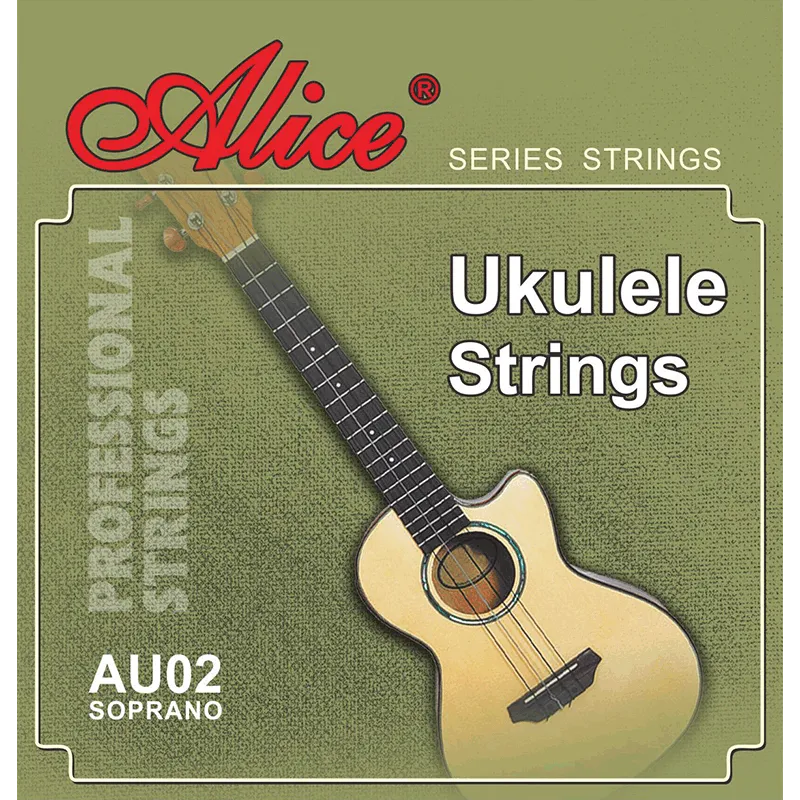
Folk Instrument Strings: Types, Materials & How to Choose the Right Set
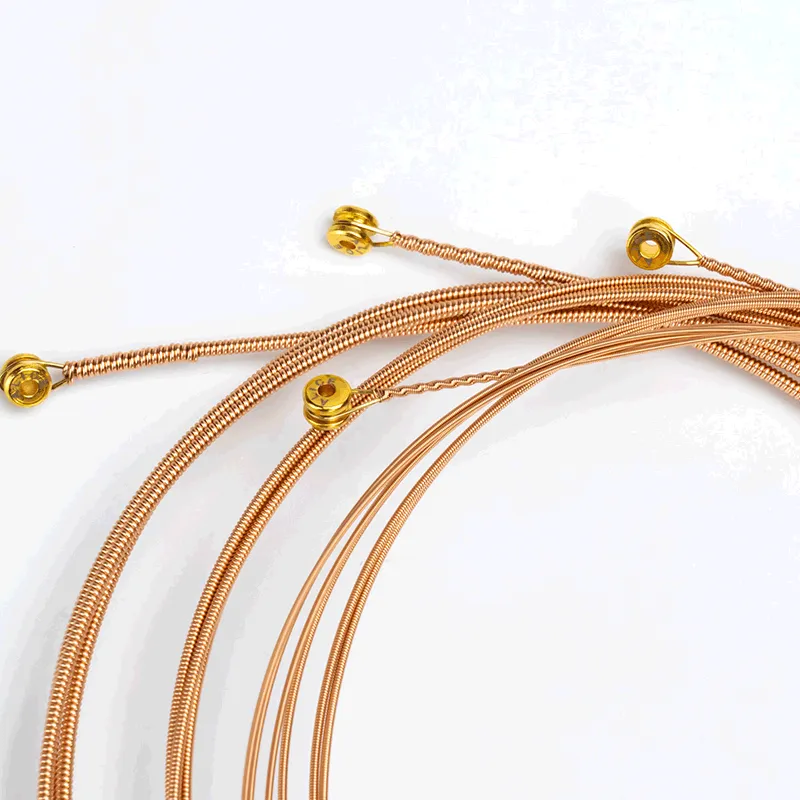
Which Acoustic Guitar Strings Fit Different Music Styles Best?

Common Guitar String Problems: How to Fix Tuning Issues, Rust, and String Breakage

Complete Guide to Guitar String Materials: Which One Is Right for You?
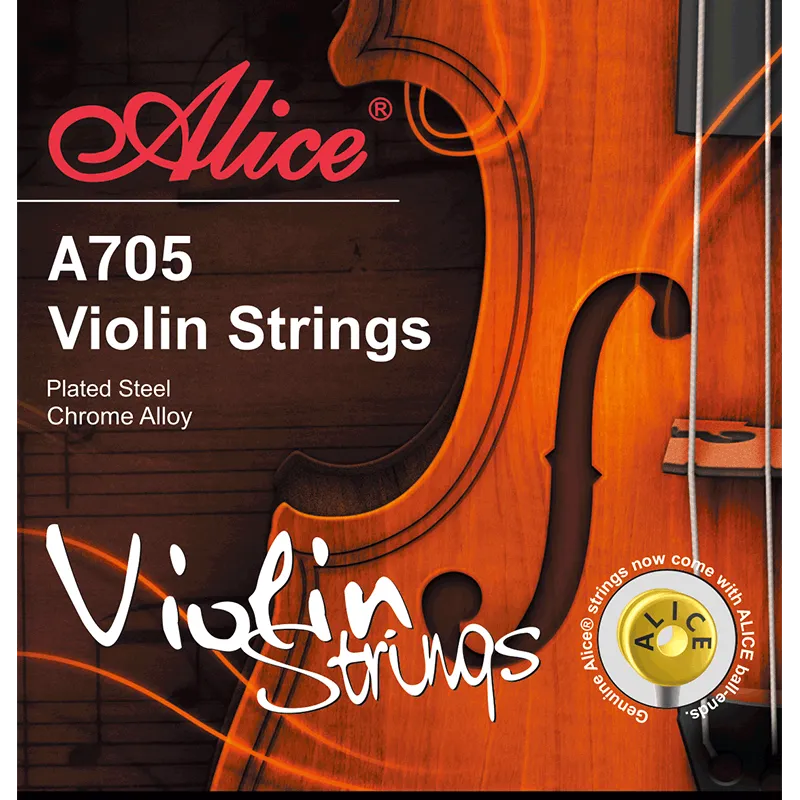
The Complete Guide to Orchestral Strings: Everything You Need to Know

Inside the Craftsmanship: The Manufacturing Process of Guitar Strings
